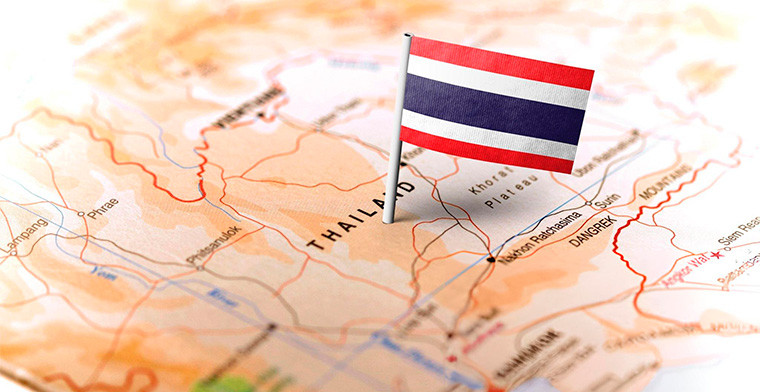The history of legal gambling in Thailand
Tuesday 21 de January 2025 / 12:00
2 minutos de lectura
(Bangkok).-The kingdom first hosted state-run casinos in 1938, but its previous experiments with taxable gambling did not go well

The current push to legalise casinos in Thailand hides the fact that the country already has "legal gambling establishments" – despite gambling being a punishable crime under the Gambling Act of 1935.
This is because opening gambling venues or hosting activities that involve betting is permitted under the law in certain circumstances.
The law divides gambling into two categories: A and B.
Category A covers universal forms of gambling such as lotteries, card games, dice games, and slot machines. Exceptions to the ban on these gambling activities can be made by royal decree.
Category B includes traditional games such as bullfighting, cockfighting, fish fighting, and horse racing. Gambling is permitted at these events, providing they are registered and properly organised. Category B also covers boxing matches, boat races, and lotteries. Authority to grant permits for Cat B gambling typically lies with administrative bodies or the Interior Ministry.
Evidence of legal gambling is widespread across Thailand. In rural areas, bullfighting and cockfighting arenas host high-stakes contests, with prized fighting roosters sometimes worth millions of baht.
Thailand is also no stranger to state-sanctioned casinos, which have been legalised two times since the Siamese revolution of 1932.
The first time was in 1935, via a Royal Decree under Article 4 of the Gambling Act that is still in use today. This decree marked the introduction of state-taxed gambling establishments in Thailand under the Finance Ministry.
The rationale was economic, aiming to replace revenue from the scrapped “Ratchupakarn Tax” – a levy imposed on Thai men who did not serve in the military or perform labour services.
A first casino opened in 1938 during the administration of Field Marshal Plaek Phibunsongkhram. A pilot casino was launched in Hua Hin but closed after a few days due to its unsuccessful trial period.
There are unverified reports that casinos also opened in other provinces for short periods.
The second legalisation push occurred in 1945 during the administration of Prime Minister Khuang Aphaiwong, around the end of World War II. Grappling with severe inflation and an economic crisis, the government revived the Gambling Act of 1935 and established casinos, starting on February 3, 1945. However, the operation lasted less than three months – 82 days in total – before the casinos were shut down on May 10, 1945. During that time, casinos opened in Bangkok and five other provinces: Hua Hin, Lopburi, Phitsanulok, Nong Khai, and Betong (Yala).
In just 82 days of operation, the casino in Bangkok alone generated 12.94 million baht – 22.8% of the country’s monthly revenue at the time. Nationwide, casinos brought in 24.13 million baht, showcasing their immense profitability. However, the venture failed amid reports that many citizens gambled away their savings, falling into debt and even resorting to suicide.
In an echo of the current push to legalise gambling, the casinos charged high entrance fees and barred children. However, underage individuals reportedly sneaked in, while other customers borrowed money to gamble, leading to widespread financial ruin. These factors forced the government to shut down the casinos.
While casinos were discontinued, the Gambling Act remained in effect, permitting betting on the state lottery and traditional games.
However, Thailand looks set to take another gamble on legal casinos after the Cabinet last week approved the draft Entertainment Complex Business Act. The Pheu Tha-led government expects casino-resorts to generate 12-39 billion baht in annual tax revenue while creating over 9,000 new jobs.
Categoría:Legislation
Tags: Sin tags
País: Thailand
Región: Asia
Event
ICE Barcelona 2026
19 de January 2026
CT Interactive successfully closed its participation in ICE Barcelona 2026 and advances in Africa
(Sofia).- The company strengthens its presence in regulated Europe and LATAM, and accelerates its expansion in Africa with South Africa as a key strategic market.
Thursday 29 Jan 2026 / 12:00
EEZE drives its global expansion at ICE Barcelona 2026 with a strong focus on LatAm and Europe
(Barcelona, SoloAzar Exclusive).- Diego Verano, Business Development Director at Eeze, confirms that the company closed ICE Barcelona 2026 with record participation: strong interest in Fusion Roulette and the new game show Fortune Drop, along with key progress in certifications for Brazil and Peru that strengthen its growth strategy in Latin America.
Thursday 29 Jan 2026 / 12:00
GAT Sets New Meeting Record at ICE Barcelona and Strengthens Strategic Alliances
(Bogotá).- GAT Events, a leading B2B business, knowledge, and institutional networking platform for the gaming industry in Latin America, had an outstanding participation at ICE Barcelona 2026 with a large delegation made up of its commercial, marketing, communications, and public relations teams, reaffirming the growing global interest in the Latin American and Caribbean markets.
Thursday 29 Jan 2026 / 12:00
SUSCRIBIRSE
Para suscribirse a nuestro newsletter, complete sus datos
Reciba todo el contenido más reciente en su correo electrónico varias veces al mes.



















